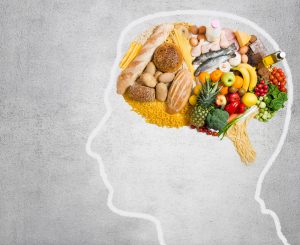 Did you know that by following a healthy diet you can actually help your brain heal? By including or excluding certain foods as part of your healthy lifestyle, you can help maximize the possibility that you’ll have a healthy brain for many years to come. Here’s a quick look at some of the best foods to include in your diet to improve your brain health.
Did you know that by following a healthy diet you can actually help your brain heal? By including or excluding certain foods as part of your healthy lifestyle, you can help maximize the possibility that you’ll have a healthy brain for many years to come. Here’s a quick look at some of the best foods to include in your diet to improve your brain health.
You know that a balanced diet is part of a healthy lifestyle, but did you know that it can reduce the risk of stroke, type 2 diabetes and Alzheimer’s disease? Though the brain only represents 2% of your adult weight, it uses 20% of your body’s energy. Insufficient energy can result in fatigue, concentration issues and memory problems.
Generally, you want to get five portions of fruits and vegetables, protein from oily fish, eggs and meat, healthy complex carbohydrates such as whole grains, and limited amounts of salt, sugar and alcohol. The brain gets energy from the glucose in carbohydrates, with complex carbohydrates releasing that energy slowly and in a stable fashion over a longer time period than simple sugars.
A fifth of your brain’s dry weight is fat from omega-3 and omega-6 fatty acids. Because these compounds are not produced in the body, they have to be found in your diet, with omega-6 fats coming from poultry, avocado, eggs and nuts and omega-3 fats coming from walnuts, oily fish such as salmon and seeds such as flaxseed. At the same time, trans fats should be avoided because of their action in stopping essential fatty acids from working effectively.
Amino acids, which are the building blocks of proteins, are also the basis for neurotransmitters, the brain’s regulators for mood and energy, including your natural sleep cycle. The B-vitamins folate and B-12 support healthy nervous system function and a deficit of these nutrients lead to memory issues, fatigue, numbness in the extremities, muscle weakness, psychological issues and mouth ulcers. Superfoods, such as deep-colored fruits, vegetables and berries tend to prevent disease through high antioxidant levels, as do dark chocolate, green tea and polyunsaturated and monounsaturated fats. Using extra virgin olive oil in place of other oils has been proven to lower ischemic stroke, Alzheimer’s disease and cognitive issues.
Though what you eat is important, when you eat is equally important. Though it can be very tempting to skip meals when you’re busy, regular meals help you keep a steady energy level. If you’re not in a position to always eat on time, at least eat a healthy breakfast to improve concentration and mental performance during your daytime activities.
By maintaining a healthy lifestyle and diet, including brain food, you can minimize your risk for a wide range of neurological issues and diseases. Take a few minutes today to determine what habits and foods you can swap out to make the transition easier, then discover how wonderful having a healthy brain is.



